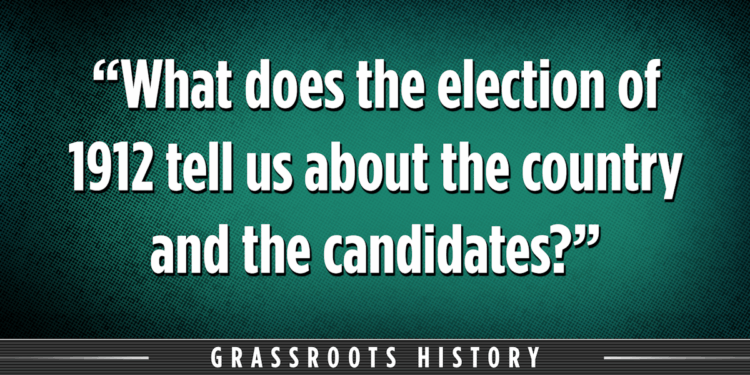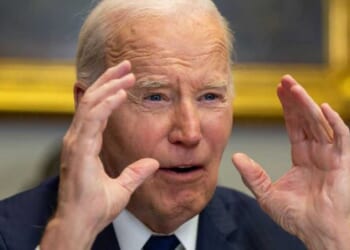When historians gather to discuss controversial presidential elections, there is no shortage of candidates, issues, and outcomes to discuss.
John Quincy Adams and Andrew Jackson’s quest for the presidency in 1824 — with Henry Clay as an additional candidate — certainly is always discussed. After all, Jackson referred to that election as the “corrupt bargain,” and perhaps he was correct in his analysis. Once the House of Representatives was tasked with determining the outcome between the candidates, and Adams offered Clay the position of Secretary of State, the presidency was sealed.
Of course, Jackson would go on to win the 1828 and 1832 presidential elections, so his revenge was limiting Adams to only one term.
The election of 1860 reminds those interested in political scenarios that multiple candidates stir the pot. That election on the eve of the Civil War witnessed Abraham Lincoln, a Republican, facing three candidates who each claimed a section of the Democrat Party — Senator Stephen A. Douglas, Democrat; John C. Breckenridge, Southern Democrat; and John Bell, Constitutional Union.
Lincoln won the presidency with 180 electoral votes, while his three contenders split the remainder: Breckenridge, 72; Bell, 39; and Douglas, 12. What surprised many political watchdogs was that Douglas failed to garner the majority of the Democrat votes. The election results evidenced the impact the Southern blocs would have in the immediate future. Breckenridge was from Kentucky and Bell was from Tennessee; their votes sounded a warning bell predicting that within six months 11 states would secede from the Union and the country would be plunged into civil war.
So, what does the election of 1912 tell us about the country and the candidates? The unfolding campaigns were fascinatingly complicated while the outcome was predictable.
The Republican Party that had elected William McKinley in 1900, seen Theodore Roosevelt rise to the presidency after McKinley’s assassination and be reelected in 1904, and witnessed William Howard Taft become president in 1908 split into two wings — the Progressives and the Conservatives. While there had been attempts to bridge the gaps, the Conservatives viewed Roosevelt and the Progressives’ endorsement of a more direct democracy and a reform agenda as too radical.
Taft drifted toward the Conservatives, frustrating his former mentor, Roosevelt, who accused him of distrusting the people he served and instead promoting the interests of the wealthy corporations that supported his campaign. Roosevelt actually uttered the phrase “de facto oligarchy” in reference to Taft. Taft responded that Roosevelt was encouraging “mob rule.” The Republican Party split, and while Taft campaigned for the presidency on that ticket, Roosevelt entered the fray as the candidate of the Bull Moose Progressive Party after winning nine of the 12 direct primaries in the states using that system.
Taft and Roosevelt would face former New Jersey Governor Woodrow Wilson, who also considered himself to be the representative of both the traditional and progressive wings of the Democrat Party. Wilson, renowned as a political scientist and scholar, campaigned on the issue of New Freedom, quoting Jeffersonian ideas of individualism and states’ rights and economic freedom via the lowering of tariffs, destruction of trusts, and banking reform.
When the votes were counted, Wilson had gained 42% of the popular vote, with 435 electoral votes secured by his victory in 40 states.
In his acceptance of the Democrat nomination, Wilson identified his quest:
We stand in the presence of an awakened Nation, impatient of partisan make-believe. The public man who does not realize the fact and feel its stimulation must be singularly unsusceptible to the influences that stir in every quarter about him. The Nation has awakened to a sense of neglected ideals and neglected duties; to a consciousness that the rank and file of her people find life very hard to sustain, that her young men find opportunity embarrassed, and that her older men find business difficult to renew and maintain because of circumstances of privilege and private advantage which have interlaced their subtle threads throughout almost every part of the framework of our present law. She has awakened to the knowledge that she has lost certain cherished liberties and has wasted priceless resources which she had solemnly undertaken to hold in trust for posterity and for all mankind; and to the conviction that she stands confronted with an occasion for constructive statesmanship such as has not arisen since the great days in which her Government was set up.
That message resonated with enough of the voters to secure his election.
In an interesting side note, Socialist Eugene Debs garnered 6% of the vote, winning no states or electoral votes but gaining attention with his rallying calls against the “oligarchy that oppressed average American workers.” It would be the most successful of his five runs for the presidency.
Next week, we’ll examine Wilson’s first term and whether he was able to deliver on his goals of reclaimed liberties.

















